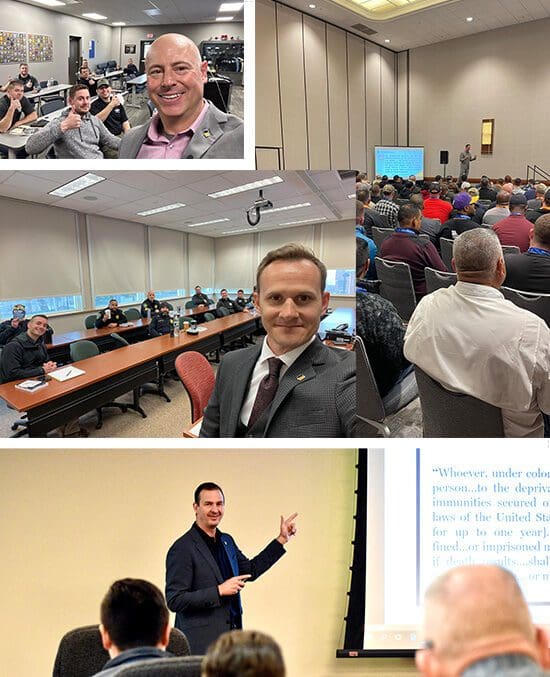Leadership and Management Responsibilities
One part of any Constitutional Policing training program is about individual, personal efforts to know and understand how the Constitution applies to police practices. The other part, this part, involves organizational leadership—how focused policies, training, strengthened systems and other initiatives can help to establish the legitimacy necessary for effective law enforcement. This program is about leadership principles as applied to the much-needed effort to assure the highest possible quality of Constitutional Policing—inspiring people to apply our organizational values to this vitally important area of ethics, law, and performance.
Violations of the Federal Constitution can cause loss of public trust, criminal evidence suppression, massive civil liability and even criminal prosecution of law enforcement officers. This advanced training reminds the leaders of field law enforcement officers what officers can and cannot lawfully do under the United States Constitution. It demonstrates how knowledge of the law can be a powerful tool for achieving investigative goals and it can empower officers to attain higher ethical standards, consistent with their oaths of office, without sacrifice of overall law enforcement effectiveness. All law enforcement leaders at all levels are responsible for assuring high-quality outcomes in this critical area. From hiring to firing and everything in between, leadership involvement and initiatives can help, or hinder, these dynamics. This training explains how.
Topics covered will include arrest and detention, search and seizure, and interview and interrogation, along with specific recommendations for strengthened leadership initiatives—including strengthened policy, training, supervision and organizational oversight.
Who should attend?
All those who teach, oversee and judge the constitutional behavior of field police officers.














